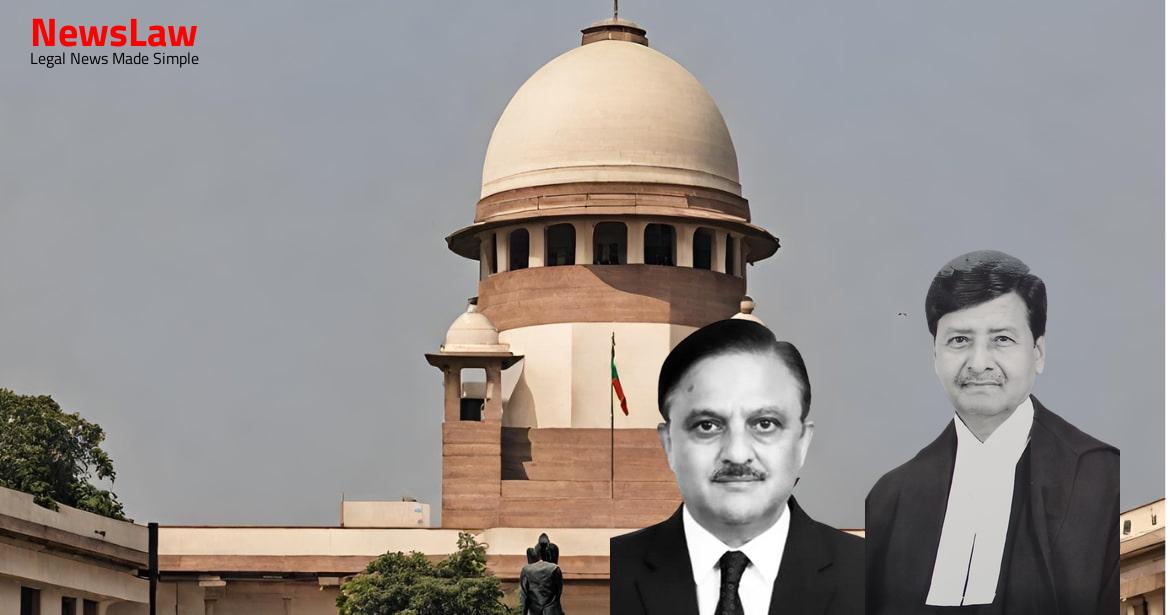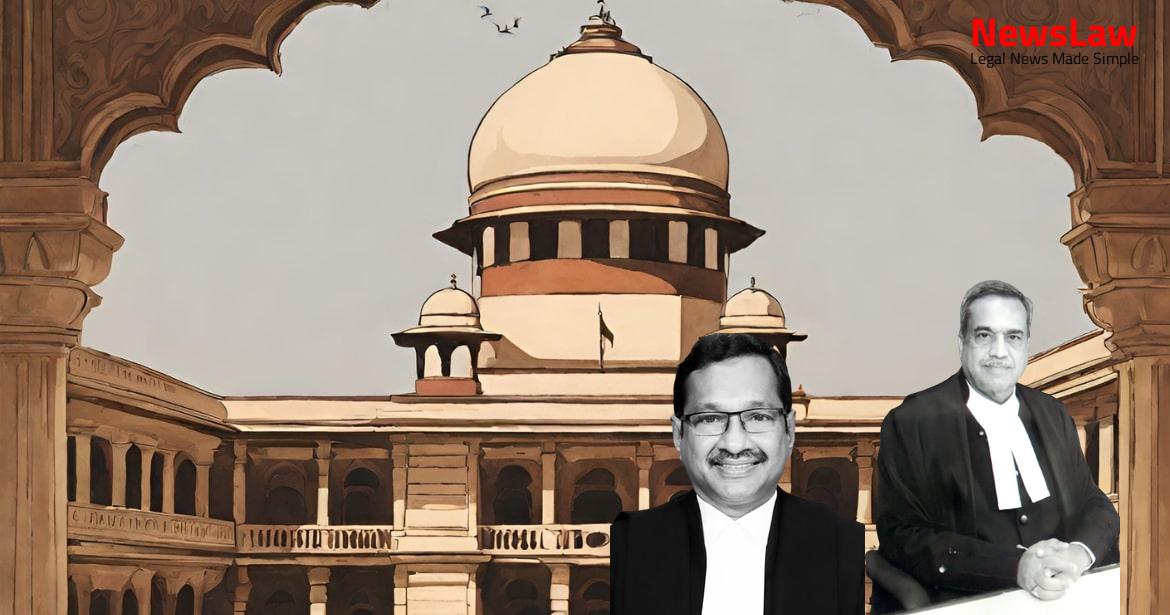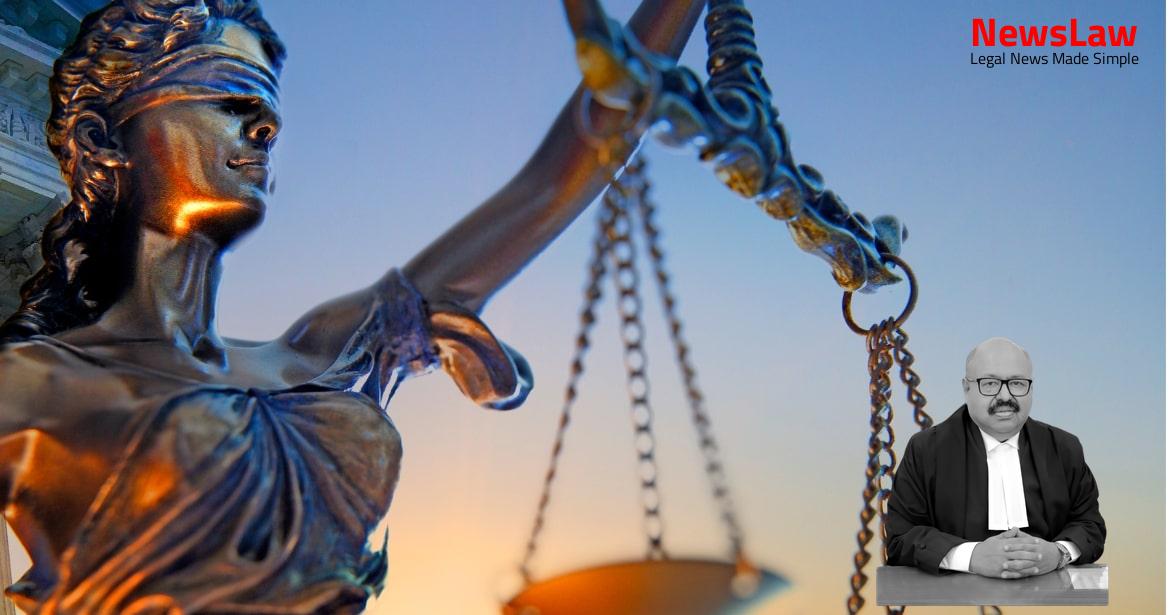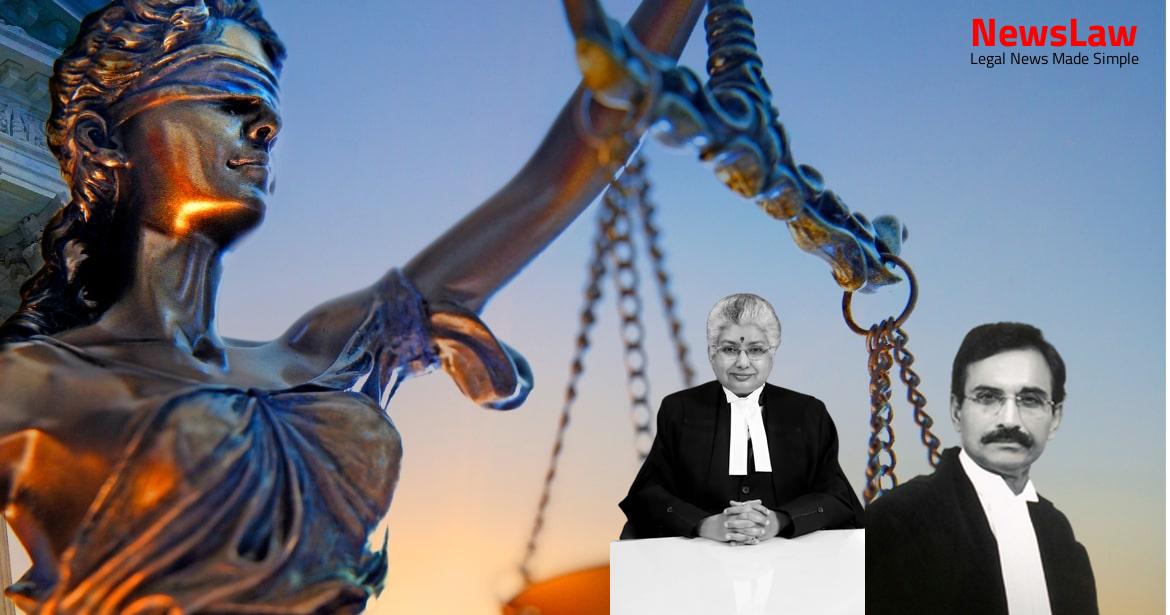The court’s in-depth legal analysis delves into the intricate scope of judicial review in arbitration cases. The focus is on maintaining the efficacy of arbitration as an alternative dispute resolution mechanism, while acknowledging the rare instances where court interference may be warranted. This summary sheds light on the nuanced considerations that guide the court’s approach to issues of arbitrability and jurisdiction, ultimately underscoring the significance of upholding the principles of arbitration law.
Facts
- A deed of retirement-cum-continuation was executed between the appellant and respondent no.2 firm M/s M.M. Developers, Nisarga.
- The retirement deed recorded the retirement of respondent no.1 and the continuation of the business by the appellant and respondent nos. 3 to 5.
- An appeal was filed by the appellant and respondent no.2 challenging an order before the Bombay High Court.
- An application was filed under Section 16 of the Arbitration Act by respondent no.3, stating no arbitration agreement existed and the claim was time-barred.
- A petition under Section 11 of the Arbitration Act was then filed by respondent no.1.
- The appellant and respondent nos.3 to 5 did not respond to a notice from respondent no.1.
- Similar orders were passed by a Single Judge of the Bombay High Court on petitions under Section 11 of the Arbitration Act related to three partnership firms.
- The respondent no.1 invoked the arbitration clause in the retirement deed through an advocate’s notice.
- The Single Judge appointed a member of the Bar as the sole Arbitrator in response to the petition.
- A counter affidavit by respondent no.1 stated that the appellant did not appear in the petition but was represented by an advocate during a preliminary meeting with the Arbitrator.
- The objection raised under Section 16 was rejected by the learned Arbitrator in the order dated 25 May 2021.
Also Read: Quashing of Complaint: Legal Analysis
Arguments
- Respondent no.1 pointed out that the appellant, respondent no.2, and respondent nos. 4 and 5 were represented by a common advocate supporting the respondent no.3 in the application under Section 16.
- The appellant was not given notice of the date fixed in the petition under Section 11, preventing him from raising objections regarding the claim’s limitation and absence of an arbitration clause.
- The appellant filed a petition under Section 34 of the Arbitration Act to challenge the order of the learned Arbitrator overruling objections raised by respondent no.3.
- Appellant’s advocate supported objections raised by respondent no.3 under Section 16, which were overruled by the Arbitrator on 25 May 2021.
- Appellant did not disclose that his advocate appeared before the Arbitrator on 8 May 2021 and the Arbitrator’s order dated 24 June 2021 allowing respondent no.1’s application under Section 17.
- Counsel for respondent no.1 argued that the issues concluded by the impugned order cannot be reopened by the Arbitrator.
- Appellant can raise the issues in the present appeals in the arbitration petition under Section 34.
- The advocate mentioned in the email was appointed on the instructions of the present appellant.
Also Read: Legal Interpretation of Overriding Effect in Food Safety Legislation
Analysis
- The scope of judicial review and jurisdiction under Sections 8 and 11 of the Arbitration Act is limited and restricted.
- Court interference at Section 8 or 11 stage is rare and occurs when the arbitration agreement is non-existent, invalid, or the disputes are non-arbitrable.
- Judicial review is to protect parties from being forced into arbitration in clearly non-arbitrable situations.
- The Court defaults to referring the matter when contentions on non-arbitrability are arguable.
- Judicial notice is taken of a consistent practice on the Original Side of Bombay High Court where advocates serve notices of proceedings before the Court.
- The Tribunal is the preferred authority to decide non-arbitrability questions in line with legislative mandates.
- The appellant could have arranged to contest the petition but the notice was served in November 2019.
- The Court can have a ‘second look’ at non-arbitrability aspects post-award in certain instances as per the Arbitration Act.
- The impugned Order referred to the affidavit of service of notice filed by respondent no.1 but the appellant’s appearance in a meeting was not recorded.
- The Court’s decision in the case of Vidya emphasized on referring the matter when contentions on non-arbitrability are arguable.
- The court is not meant to conduct a mini trial or elaborate review during the determination of arbitrability.
- The court’s role is to uphold the integrity and efficacy of arbitration as an alternative dispute resolution mechanism.
- The conclusions of the court have been summarized to affirm the scope of judicial review under Sections 8 or 11 of the Arbitration Act post the amendments by Act 3 of 2016 and Act 33 of 2019.
- The learned Single Judge observed that the contentions of the parties have been kept open in clause (vii) of the operative part of the impugned Order.
- The issues of non-arbitrability and the claim being time-barred have not been concluded by the learned Single Judge of the Bombay High Court.
- The issue of non-arbitrability is left open to be decided by the Arbitral Tribunal.
Also Read: Analysis of Improper Grant of Bail in the Director of Enforcement v. Bablu Sonkar Case
Decision
- The appeals are dismissed
- Contentions raised by the appellant in pending petitions under Section 34 of the Arbitration Act before the High Court of Bombay are left open
- No order as to costs is given
- Pending petitions challenging the Order dated 25 May 2021 are before the High Court where the appellant can raise permissible contentions
- No case for interference is made out in the considered view of the court
Case Title: MOHAMMED MASROOR SHAIKH Vs. BHARAT BHUSHAN GUPTA (2022 INSC 138)
Case Number: C.A. No.-000874-000874 / 2022



